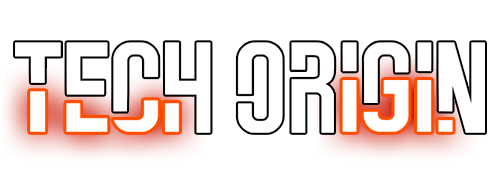AI: Augment or Overthrow?
AI is a piping hot topic at the moment in the world of Tech, with recent advancements in its abilities fueling the overarching worry that it will soon take away the need for human employees in certain employment sectors. Elon Musk, the biggest tech mogul of the 21st century, has even spoken out against the recent race to be the next big AI platform, warning that “one of the biggest risks to the future of civilization is AI”. But are we really barreling towards the end of the job market as we know it?
Join us as we take a deep dive into whether Artificial Intelligence will simply augment our working lives or overthrow them.
Let’s talk about Artificial Intelligence
When many people think about artificial intelligence (AI) they tend to imagine some humanoid robot that will someday become sentient and try to take over the world (think Westworld vibes). But it’s not all about robots of the future, in fact we’ve been using AI for a number of years in the form of customer service chatbots, language translation apps, and auto correct. So by this point we should be pretty used to working with Artificial Intelligence.
But, recent advancements have blown this comfortable relationship out of the water, namely the creation of Generative AI. This newest progression teaches AI code to interact with the user and learn from its mistakes, creating the ability to make more accurate, human-like content. We can see this in the art AI system DALL-E 2 that can create realistic images from natural language, and ChatGPT, the latest innovation in long form content building.
These new ways of using non-human operated technology have raised some important questions around how far we can and should take these advancements. With big industry names vying for the biggest market share in an emerging industry, many experts are calling for stricter guidelines on where the code is used to both increase user safety and create a more sustainable growth/ implementation strategy. But in this conversation, one statement has come to the surface that is prevalent across various industries…
Will Artificial Intelligence take my job?
Is it the job market or the AI market?
As AI becomes more prevalent it is undeniable that the job market will change. Much like when the phone replaced the telegraphers, computers replaced typists, and cars replaced carriage drivers, improving technology has always led to job loss. But, it can also lead to easier roles, increased efficiency, and higher productivity. So the trick is not to ask if AI can do your job (because let’s be honest, it can) but instead how much of your job AI can do, therefore showing if your role will be simply augmented or totally overthrown.
One primary cause of technology overtaking a job role is because that particular job has a large scope for human error. We can see this in jobs such as data annotation, quantitative lab scientists, and pharmacists, as technology is used to catch or prevent human mistakes. Therefore, by using AI, companies can save on cost and increase their efficiency with minimal disruption to their supply chains. Therefore jobs with these characteristics are most likely to be overthrown by AI over the next 10 years.
On the flip side, jobs that require a human to catch a computer's error are most likely to be augmented by advances in AI systems rather than overthrown by AI over the next 10 years. Key examples of these jobs are writers, marketers, graphic designers, and lawyers, as despite improvements in AI, humans are still needed to check tone, style, and overall accuracy of any created content. As a result, these jobs are likely to be augmented over the next 10 years as AI makes these jobs more efficient by eliminating the need for time consuming tasks such as writing log form content. While it could be argued that as a result of increased time efficiency, less people will be needed for roles and therefore a decrease in the workforce will be seen. The overall need for humans in these roles will mean you won’t have to ask your employer for your P45 quite yet.
The next 10 years…
So, should we be scared of where this tech will lead us over the next 10 years? To be perfectly honest, I think we would be naive if we weren’t at the very least apprehensive. With innovations moving at such a break neck speed, we as an industry and a society need to remember that advancing doesn’t always mean improving, and sometimes there is no way back once the next step is made, especially within the job market. Once skills are lost it’s extremely hard to regain them, and AI isn’t perfect, it still makes mistakes. An increase in open conversation and understanding is needed before we can fully explore how far AI is going to push the boundaries of work, which will hopefully allow us to also know when it’s time to stop.
However, the next 10 years doesn’t have to look like something out of an Armageddon blockbuster. With the right regulations and teaching, we as industry professionals will be able to adapt to our new cyber colleagues and make them fit in with our working lives. We just need to understand what that life will look like. In the meantime though, learn everything you can about the new releases and think about how they can enhance your job rather than take away from them.
After all, one knows what the future holds until we get there.
Here at Tech Origin we’re always looking ahead, even if it is towards a future where AI robots rule the world. Do you have insight on how advancements in technology are changing the world as we know it? Then check out our contributor page.

